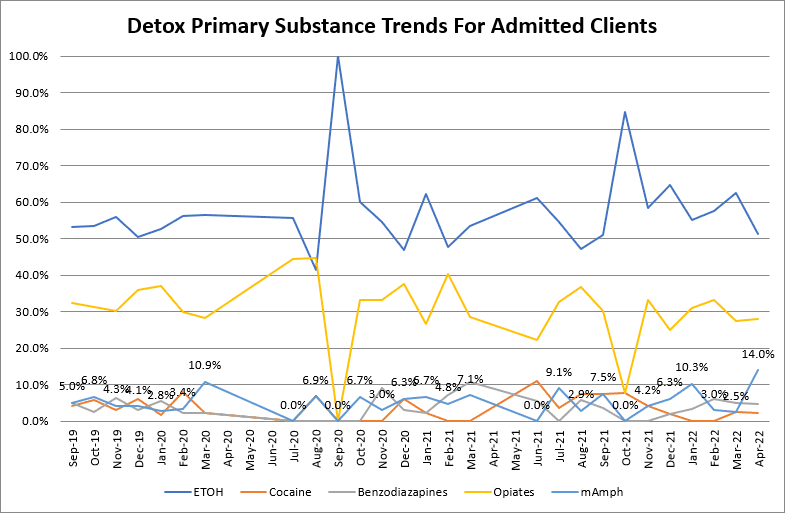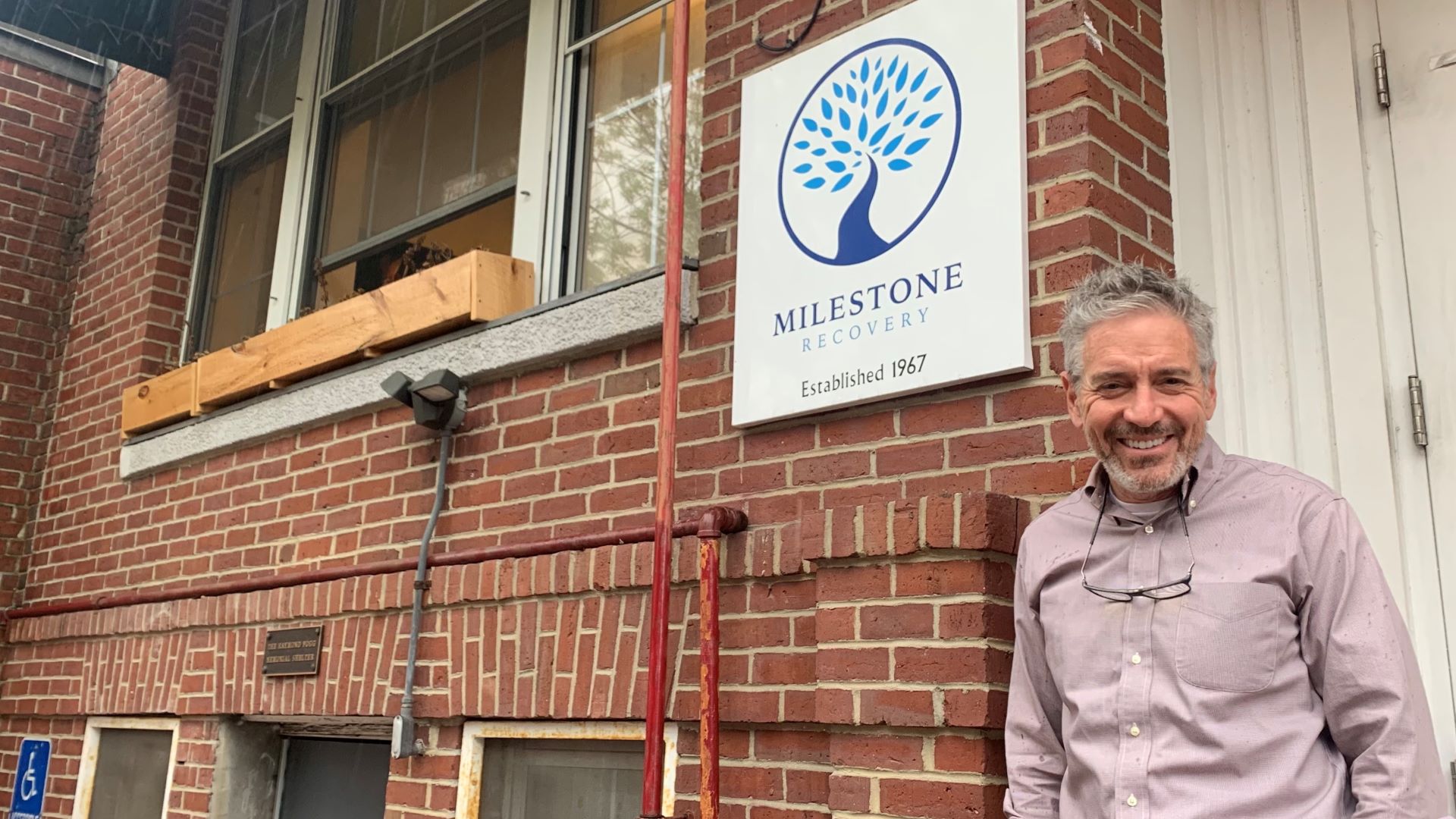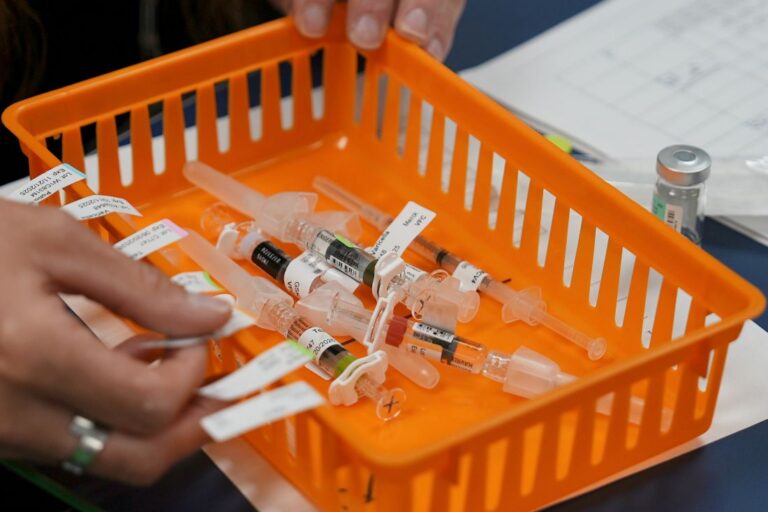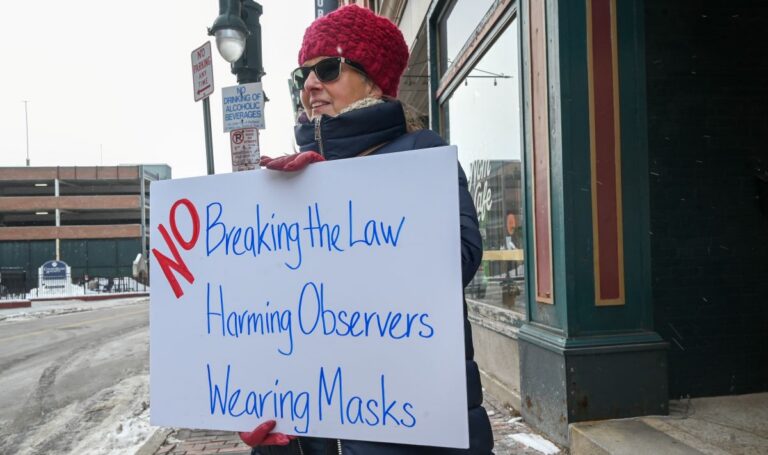Courtney Allen was on her way from Augusta to Bangor one day in January, driving a man to a substance use treatment center that accepts MaineCare, when she learned the facility couldn’t take him.
Allen was able to find a backup place in Derry, N.H., that provided him a free bed. So Allen turned around and they drove across the state line.
“The reason why that is possible is because I have the privilege and I have a vehicle and I have money to put gas in the car and I care about this individual,” Allen said. “But that’s not even close to possible for most people.”
As the number of people struggling with alcohol and drug use increases, Maine has just two facilities that serve uninsured people trying to withdraw from their addiction. Wellspring in Bangor and Milestone Recovery in Portland have 20 beds between them, and frequently have to turn people away. They each were forced to close at one point during the pandemic because of staffing shortages.
Both facilities said it was difficult to track how many Mainers are turned away daily, but at Wellspring the phone rings “pretty much nonstop,” said Suzanne Farley, the executive director.
“There’s a lot of people who really want treatment who can’t get into it,” she said.
Substance use and drinking shot up during the pandemic. An estimated 621 Mainers died from drug overdoses last year, according to data released this month by the U.S. Centers for Disease Control and Prevention. That’s a nearly 27% increase over the prior year.
Alcohol-related deaths nationally increased 25% between 2019 and 2020.
Allen, the organizing director with the Maine Recovery Advocacy Project, said she frequently sends Mainers out of state to get treatment. They go to Massachusetts and New Hampshire, and sometimes as far as Virginia and Florida.
These are often called “detox” beds, but experts say that label reinforces stigma around people struggling with substance use disorders.
Another option is a hospital emergency room, but Allen said she stopped sending people there because it can be a “horrific experience.” Hospitals are understaffed and employees are overworked, so those seeking monitored withdrawal can spend hours in the lobby, she said.
When people tell her they are ready for treatment, Allen said it’s the “worst day of my life” because there’s nowhere in Maine to send them.
Gov. Janet Mills’ administration recently changed rules to allow expanded bed capacity, increased MaineCare reimbursement rates and is pursuing additional funding. But the efforts have yet to result in additional beds for low-income Mainers.
And the outcomes can be devastating.
“They die. That’s the reality,” Allen said. “Right now, on the ground, when people can’t get what they need, they die. And we’re seeing it every day. It feels like once a day, one of my friends dies.”
A never-ending demand for treatment beds
On a cold Saturday night last October, Wellspring didn’t have enough nurses available to run its detox program, so it had to close its doors. Management staff scrambled to find a safe place for the handful of patients to sleep that night.
“It was horrible,” said Farley, the executive director. “Everybody came together and we did a good job, but it was painful because we care about the people we take care of.”
Farley said Wellspring’s mission is to serve people on MaineCare, the state’s version of Medicaid, which provides assistance for Mainers with limited resources. But finances can be tight. The nonprofit ran a deficit the first three years, she said.
“But our mission was to serve this population so we bit the bullet and continued to operate at a deficit,” she said.
Some for-profit treatment centers say they set aside beds for the uninsured, “but in practice we don’t always see that that’s the case,” said Malory Shaughnessy, executive director of the Maine Alliance for Addiction and Mental Health Services.
Shaughnessy said her organization receives calls every week from family members desperately seeking help for loved ones suffering from substance use. The inability to get care within a day is “a major barrier.”
“Often if you don’t catch them at that moment, you may lose them again,” Shaughnessy said. “Many people drift off again and we see many times somebody will have an overdose or die from withdrawal from alcohol because they couldn’t get help when they needed it.”
Neither Wellspring nor Milestone Recovery keep a wait list for this reason; a lot can change in a couple days. Mainers call in the morning to see if there are beds available and if there aren’t, they are told to call back the next day.
Allen said she starts calling at 6 a.m. when she wants to find a bed for someone.
Not enough nurses
Wellspring has 10 beds available. Farley said she’d like to expand Wellspring’s services, but staffing is a major challenge.
Turnover due to exhaustion has been high throughout the pandemic, at one point reaching 60%, she said. Wellspring has worked to change that by improving training and support, but the demand on healthcare professionals throughout the pandemic has been significant.
And Maine continues to grapple with a statewide nursing shortage.
“That’s the thing I’m most anxious about. If we take the plunge and grow, will we have enough counselors and nurses?” Farley said. “Specialized credentials are so needed and so hard to come by.”
Staffing shortages prompted Milestone Recovery, in Portland, to close its doors twice during the pandemic: In April 2020, then again in April 2021.
There needs to be a registered nurse and a licensed nurse practitioner on duty continuously, said Tom Doherty, the executive director. Milestone typically has two or three nurses on at any time, but the statewide nursing shortage has made recruitment difficult.
Last month, Gov. Mills launched a $21 million program to expand training for healthcare workers and employers. And rising numbers of students are pursuing a nursing career.
The state Department of Health and Human Services distributed $53 million in federal funds to provide recruitment and retention bonuses for home- and community-based behavioral health services, said spokeswoman Jackie Farwell. And MaineCare is conducting a rate study this fiscal year to invest in reimbursement for hospitals to conduct medically supervised withdrawal.
“The Department is committed to ensuring that Maine people with substance use disorders have access to a full array of services, from prevention and early intervention to detoxification, treatment and recovery,” Farwell said.
DHHS also lifted a 16-bed cap on substance use treatment beds. Milestone and Wellspring could now expand their services beyond 16 beds.
Milestone is trying to increase staffing to get back up to 16 beds, but has plans to eventually expand to 24. Milestone recently received $690,000 from the federal government to support its substance use services and create an out-patient program.
Typically about half the clients admitted to Milestone’s detox program are treated for alcohol (ETOH), a third for opiates, and smaller portions for cocaine, benzodiazepines and amphetamines, Doherty said.

DHHS last year increased the MaineCare reimbursement for monitored withdrawal facilities by 77%. That means places like Wellspring and Milestone Recovery get more money for each patient. Farley called the new rates “good and fair.”
The rate increase is helpful, but it needs to be even higher to make up for a decade without increases, Shaughnessy said. Especially since alcohol and drug use increased during the pandemic. And inflation has increased the cost of doing business.
“When the system has been under strain for many years prior to the pandemic and then you add in the pressures of the pandemic, the hole gets very deep,” Shaughnessy said.
There could be federal funds, through the American Rescue Plan Act, signed into law by President Joe Biden last year, available in the coming months to expand medically monitored withdrawal and residential treatment providers, Shaughnessy said.
“Ultimately we’re all concerned about access to care for people with less means,” Farley said. “And I think there are a lot of good people putting their heads together and working hard to increase accessibility. It just takes a while to all come together.”








